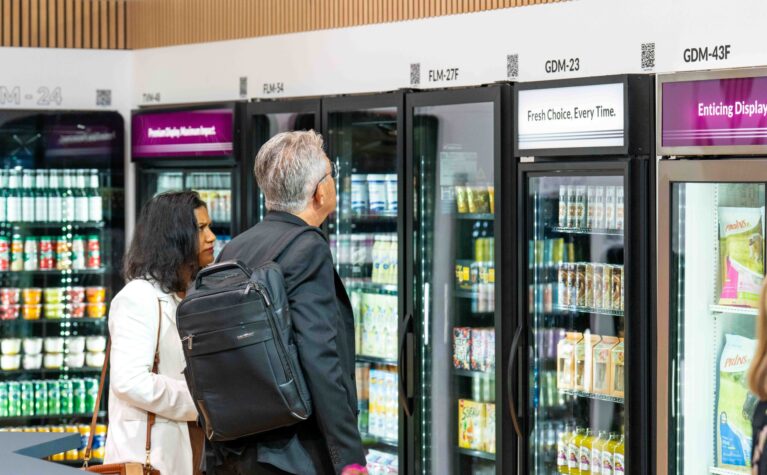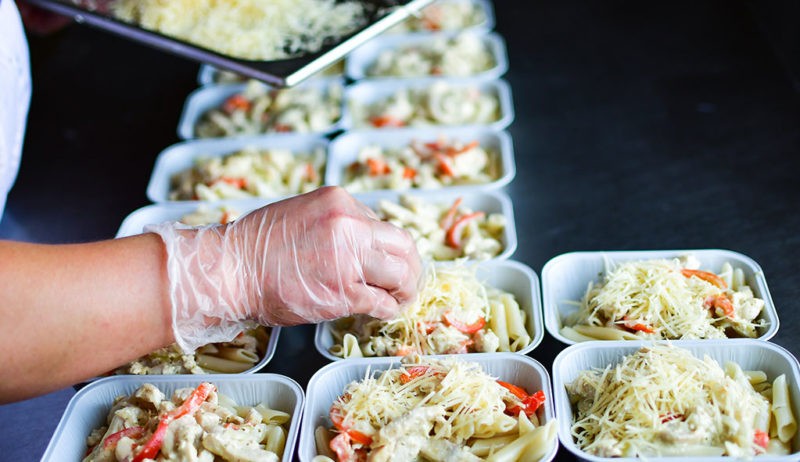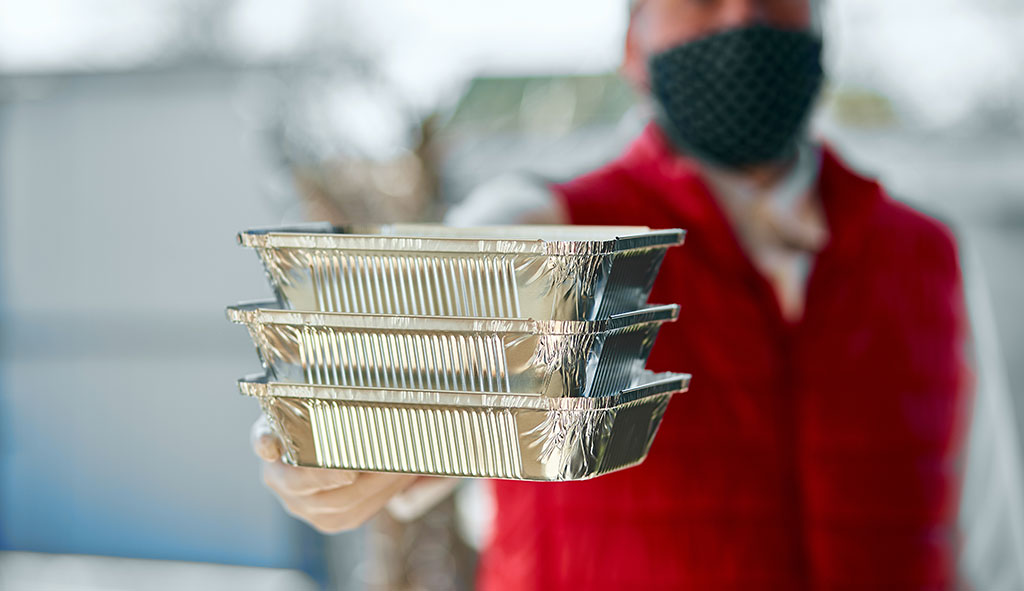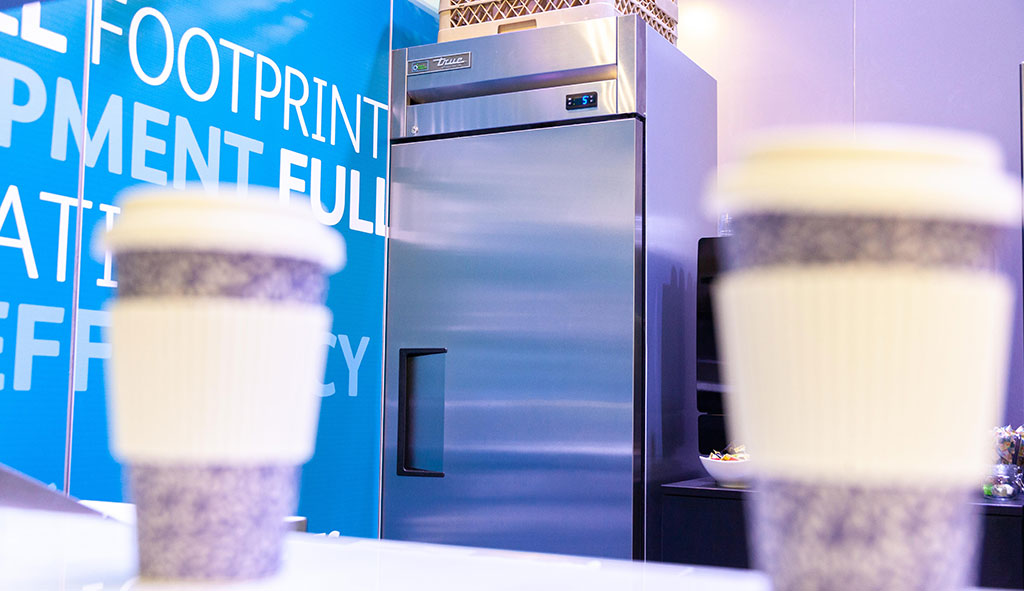What’s next for commercial refrigeration? Trends to watch in 2026 and beyond


Whether they’ve been desperate for a hint of normality or keen to indulge in a special treat, consumers have shown just how much they’ve missed dining out in the pandemic, demonstrated through the considerable success of takeaways and makeaway kits.
2020 reports from food delivery giants Just Eat, Deliveroo, and Uber Eats showed that customers turned to takeaway as restaurants, bars, and cafés bore the brunt of COVID restrictions. Business owners seized the opportunity to use other routes to generate revenue – allowing takeaway dining to step in.
From local restaurants to fine dining, small cafés, and huge fast-food chains, customers have been ordering anything from coffee to cannelloni straight to their door.

The popularity of takeaways has soared during the pandemic.
And the takeaway offer hasn’t stopped at takeaway meals. Businesses worldwide have introduced makeaway kits to their pandemic offering.
Used to celebrate key dining occasions such as Christmas Day and Valentine’s, or as a special treat, the DIY delivery boxes feature the ingredients needed to make signature dishes with cooking instructions included. The packages allow consumers to embrace a slice of normality and try their hand at creating restaurant-quality food in the comfort of their own homes.
London’s The Clove Club is one of many eateries offering a unique makeaway service to enjoy at home, following the success of its sister restaurant Luca’s at home offers.
Although restaurants will be open again soon, industry experts expect makeaway boxes to continue to thrive because consumers love the service and its novelty aspect.
For a while now, there has been an ongoing trend for shrinking commercial kitchen space. This is especially true in busy European city locations, where fixed building sizes and spiraling rent costs are constantly forcing operators to increase profitability.
However, the impact of Coronavirus has caused a massive demand for food delivery services, as noted above. It leads to the accelerated growth of dark kitchens or cooking facilities that produce food only for delivery and takeout with no dine-in areas. Helping operators keep up with demand. According to Euromonitor, dark kitchens could create a $1 trillion global market by 2030.
But will new commercial kitchen space start to get larger in the future if takeaway popularity continues to surge? Or will dark kitchens remain a plausible solution?

If kitchens continue to get smaller, operators will have to think more carefully about the equipment they need to fit the space. Will the impact of Covid-19 change this?
Deliveroo says it registered almost 3,000 new UK restaurants in March 2020 and published detailed guidance on how restaurants can safely run delivery-only outlets, covering issues such as minimizing contact, packaging, and hygiene best practices.
As rent prices continue to rise and the uncertainty of the full Coronavirus effect looms, the idea of creating a delivery-only restaurant becomes more attractive, especially if you already have a successful brand. Plus, dark kitchens are a blessing for new restaurateurs, who can set up shop and get immediate access to a growing digital market without the cost and risk of opening a restaurant.
However, it will be interesting to see how many businesses opt for more kitchen space and how many invest in a separate space entirely.
The pandemic has genuinely highlighted the generous nature of local communities, bringing individuals closer together in support than ever before.
A fantastic example is the Meals from Marlow initiative set up by Tom Kerridge.
The renowned UK chef started the scheme towards the end of March 2020 to address his local community’s needs. Panic buying was rife in the UK at the beginning of the pandemic, so Tom and his team wanted to support the NHS staff who could not find food in the supermarkets after working 18-hour shifts.
“It’s not as though we had the medical skills to help them complete their lifesaving work – so we thought we could at least keep them fed with proper food while they help us all,” said Tom.
So, Meals from Marlow was born. Supplying free food to NHS staff, key workers, and people in need.
The scheme has delivered 75,000 meals to date and received support from over 1,000 donors, raising £180,000. Plus, it is soon to become a permanent charity with the aim of providing more than 30,000 meals a year to people in need in the UK.
Sanitizing stations, disposable menus, and ordering food from an app rather than a waiter became the ‘norm’ in many countries when the hospitality industry reopened in the summer of 2020.
While the vaccine rollout proves successful in most countries and consumers are keen to get back to normal, businesses will have to work just as hard as they did the last time to keep customers feeling safe and healthy.
After each epidemic and disaster, our social norms and behaviors change. The impact of Coronavirus will never be forgotten, and an increased interest in hygiene and health is to be expected. Consumer behavior has already shifted, and the industry must be prepared. We probably won’t ever see the back of hand sanitizer…
Consumers are already desperate to visit much-missed restaurants, bars, cafes, and other eateries. It’s only a matter of time before they’ll be allowed to. Let’s stay positive and stay prepared.
True is always here to support you through uncertain times. From industry advice, product support, and units and spares, we’re here for you.
Follow us on social media for more reopening tips and support.